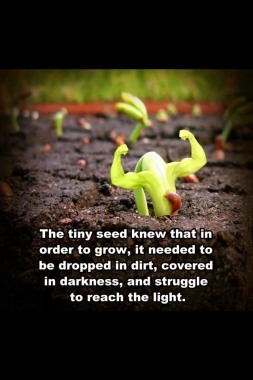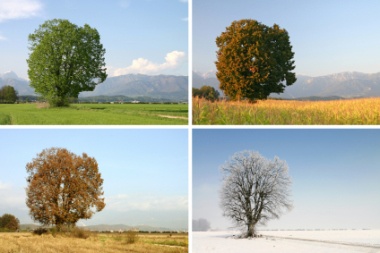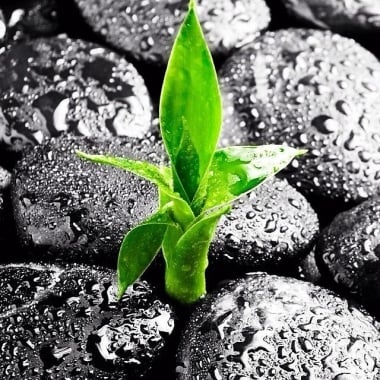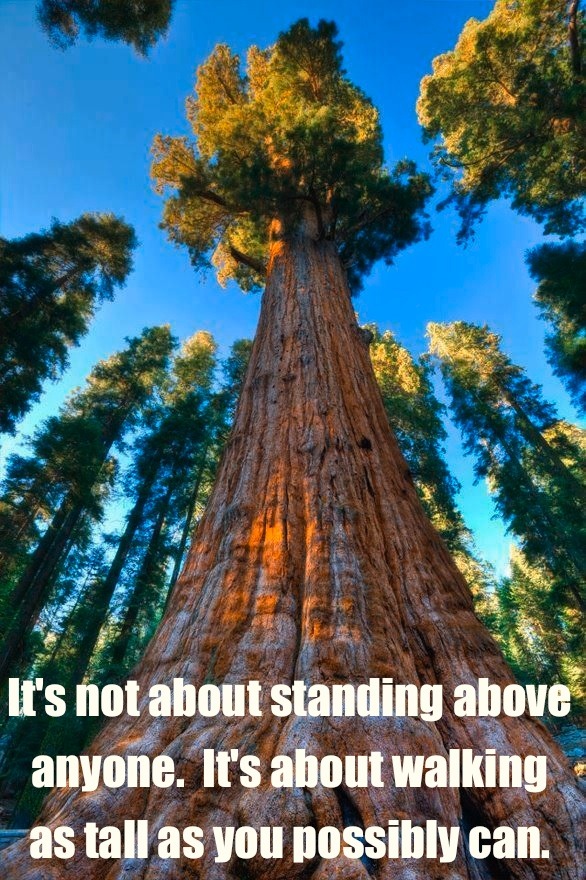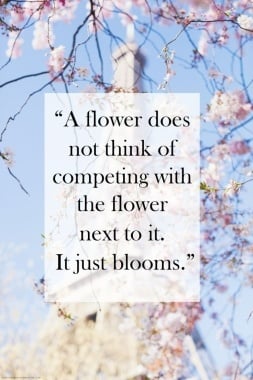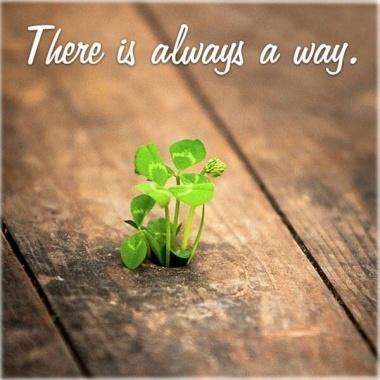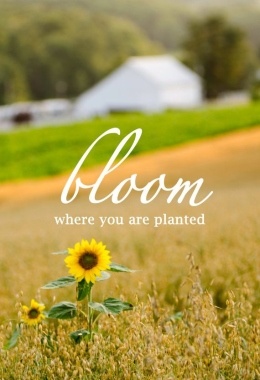1. Plants don’t set limits for how big they can grow, they grow as much as they can
Holding on to limiting beliefs is one of the greatest destroyers of human potential. The beliefs that we hold in our minds about what we can and cannot do, and what we are and are not capable of, place restrictions on what we will achieve in reality. “Whether you think you can or think you can’t, you’re right.” – Henry Ford.
2. Their Struggle for existence becomes their Strength
Trees in particular demonstrate that struggle equals strength. When they find themselves out on their own, directly exposed to the wind and weather, they respond by growing thicker roots and trunks. This makes them stronger and more stable than those that are protected from the storms and harsh weather.
3. They Take only what they need to Thrive
Plants don’t needlessly suck all the resources out of the soil in which they are planted. They take out only what they need to grow, survive and thrive.
4. They turn to face the sun
Despite everything else in nature that may be going on around them, when plants get down to their primary business of growth, they turn to face the life giving force of the sunshine. They soak up it’s rays and turn it into energy to help them become a better, healthier plants. They do not spend their time focused on the weeds and predators around them.
5. They adapt to the changing Seasons
One of the greatest lessons we can learn from plants is their ability to adapt to each of the seasons. They have figured out that the seasons are going to come around every year each with their peculiar challenges. So in order for them to continue to thrive throughout their life, in spite of these challenges, they are prepared to adapt to accommodate them. This means – Being frugal with resources during the harshness of winter – Being ready to go to work and take advantage of the opportunity for new growth in the spring – Making and storing food during the long hours of summer sunlight; and – Expecting and preparing for winter each autumn by shedding their leaves which would take up unnecessary resources
6. They neutralize pollutants
Having plants around your home can act as a natural air purifier. This is because the process they rely on for survival, photosynthesis, requires that they absorb carbon dioxide through pores in their leaves. However research has now shown that they are also useful for absorbing other common pollutants responsible for many modern respiratory ailments. Some of the plants found to be most useful in removing pollutants include Japanese Royal Ferns, Boston Ferns, English Ivy, Aloe Vera, and Peace Lilies*. Perhaps when life’s pollutants show up in our lives in the form of gossip, negativity and time wasting we can make a habit of, not necessarily absorbing it, but by responding in a way that neutralizes it’s existence.
7. They don’t let their surrounding circumstances define them
Plants are always on a mission. Their mission is to thrive and grow as much as they can regardless of where the seed of life has planted them. They will not let the fact that they happen to find themselves in a shady spot thwart their need for sunlight – they will climb the trunks of trees to reach the light. They will not accept the fact that their doesn’t appear to be enough water available for them to survive – they will grow their roots down deeper to find it or find a way to store it in their leaves until needed. They will not give in to predators, instead coming up with defenses that keep them protected and ensure their survival. The life lesson here is that we too should not let the circumstances in which we find ourselves be a reason for not doing our very best to strive to reach our potential.
8. They are not afraid to shine
Because of their focus on thriving to the best of their ability, plants do not suffer from the hang ups that humans do about how their growth, their blooming and their individuality shows up to other people. Their refreshing lack of self awareness means that for them, striving to be their best is an unrestrained absolute, a given that is a life lesson to all of us.
9. They are focused on fulfilling their potential
Closely related to the above life lesson, plants do not look to the tree, flower or green shoot to their left or to their right and think, “How am I doing in comparison to them?” Instead, they focus on what they need to do to ensure their own survival, their own growth, what they need to do to flourish and thrive. And in so doing, they focus on fulfilling their own potential.
10. They create something of value for others
By their very existence, plants are constantly providing a benefit in one way or another for someone or something else. The endless benefits of plants would be difficult to list but nutrition, shelter, and the air purification that we looked at in life lesson 6 are good places to start. The calming beauty of plants, medicinal value, and their role in keeping the earths ecosystem in balance are other benefits that we can be grateful to plants for. In learning this life lesson we can be prompted to ask ourselves, “What value am I bringing to others and the world around me?”
11. They are content to just be themselves
Plants don’t require another plant’s – or anyone else’s for that matter – validation to be who they are. They are content with the purpose that they have been given and diligently go about fulfilling that purpose to the best of their ability. While we as humans do have the challenge of first identifying what our purpose is, there are ways to go about this, and once identified, the life lesson is to be bold in our execution of that purpose, content in the knowledge that like a plant, we are blooming just as we should be.
12. They give out more value than they use up
As we saw in life lesson 10, plants create value for others. But interestingly, they do this even when it comes to resources that they themselves need to survive. Take oxygen. Plants produce approximately ten times more oxygen during the day than they consume at night**. And they only use one percent of the water they absorb, releasing the rest back into the atmosphere as purified water.*** With mounting concerns over the mass production of waste, and the dwindling levels of some of the earths natural resources, this is a life lesson that the human race should be paying close attention to.
13. They are Persistent
Plants are persistent. The best examples of this are the plants you try to get rid of. They just won’t go away right? They keep coming right back at you despite all attempts to thwart their growth. Laying a patio or some decking? Plants will find a way up through the gaps regardless of your efforts to prevent their presence. Trying to keep your flower bed free from weeds? Those little guys will not go away. They will assert their right to thrive in the face of whatever onslaught the most avid gardener throws at them. The life lesson? Don’t let other people’s attempts to put you off or put you down affect you. Keep getting back up to show them you mean business.
14. They need just a few simple things to be their best
Despite their massively valuable contributions to life on earth, plants don’t ask for much in return and have a very short simple list of things that they need in order to thrive: – Sunlight – Water – Air – Nutrients from the soil In reality, humans need only a relatively simple list of things to thrive as well but we sometimes over-complicate things by adding endless ‘essentials’ that we ‘must have’ in order to be happy or successful. How could you simplify your list?
15. They build up their defences
Plants have developed the ability to repel and defend against the host of herbivores that might seek to eat them. This includes – Reducing their digestibility if eaten. – Producing toxins that kill or repel herbivores. – Attracting the natural enemies of their would be attackers.^ The life lesson here is to be aware of where attacks against your own growth might come from. Be ready to defend against these attacks whilst protecting your right to thrive and fulfill your purpose. One of the best ways to do this is to ensure that you are not attractive to the people or things that could limit your growth.
*Livescience.com **ScienceLine ***http://www.ucar.edu/learn/1_4_2_18t.htm ^ Science Daily Featured photo credit: smblake via pixabay.com

